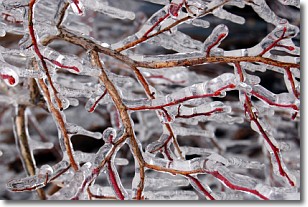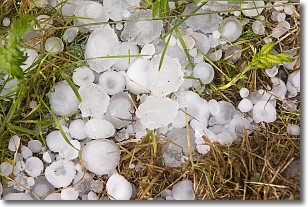Weather Alert in Michigan
Air Quality Alert issued July 31 at 3:48AM EDT by NWS Detroit/Pontiac MI
AREAS AFFECTED: Midland; Bay; Huron; Saginaw; Tuscola; Sanilac; Shiawassee; Genesee; Lapeer; St. Clair; Livingston; Oakland; Macomb; Washtenaw; Wayne; Lenawee; Monroe
DESCRIPTION: The Michigan Department of Environment, Great Lakes, and Energy (EGLE) has issued an Air Quality Advisory for elevated levels of fine particulates (PM2.5) across the state of Michigan. Pollutants are expected to be in the Unhealthy for Sensitive Groups (USG, Orange AQI) range Wednesday and Thursday with some locations reaching the Unhealthy (Red AQI) range. The Air Quality Advisory is in effect for the following Michigan counties... Midland...Bay...Huron...Saginaw...Tuscola...Sanilac...Shiawassee... Genesee...Lapeer...St. Clair...Livingston...Oakland...Macomb... Washtenaw...Wayne...Lenawee and Monroe. Smoke from Canadian wildfires moved into the Upper Peninsula Tuesday and into parts of the northern Lower Peninsula Wednesday morning. Model show the plume continuing its southern trek across the state with smoke expected to linger across the region through Thursday. As the smoke moves in, PM2.5 concentrations in the Unhealthy for Sensitive Groups (USG) range will expand south, while concentrations of PM2.5 in the Unhealthy range are more likely across northern areas. It is recommended that, when possible, you avoid strenuous outdoor activities, especially those with heart disease and respiratory diseases like asthma. Monitor for symptoms such as wheezing, coughing, chest tightness, dizziness, or burning in nose, throat, and eyes. Reduce or eliminate activities that contribute to air pollution, such as: outdoor burning, use of residential wood burning devices. Tips for households: Keep windows closed overnight to prevent smoke from getting indoors and, if possible, run central air conditioning with MERV-13 or higher rated filters. For further information, please see EPAs Air Now site for up-to-date air quality data: https://www.airnow.gov/ For further health information, please see MDHHS Wildfire Smoke and Your Health site: https://www.michigan.gov/mdhhs/safety-injury-prev/environmental-health/ your-health-and-wildfire-smoke
INSTRUCTION: N/A
Want more detail? Get the Complete 7 Day and Night Detailed Forecast!
Current U.S. National Radar--Current
The Current National Weather Radar is shown below with a UTC Time (subtract 5 hours from UTC to get Eastern Time).

National Weather Forecast--Current
The Current National Weather Forecast and National Weather Map are shown below.

National Weather Forecast for Tomorrow
Tomorrow National Weather Forecast and Tomorrow National Weather Map are show below.

North America Water Vapor (Moisture)
This map shows recent moisture content over North America. Bright and colored areas show high moisture (ie, clouds); brown indicates very little moisture present; black indicates no moisture.

Weather Topic: What is Freezing Rain?
Home - Education - Precipitation - Freezing Rain
 Next Topic: Graupel
Next Topic: Graupel
Freezing rain is a condition where precipitation which has fallen in the form of
water droplets reaches temperatures which are below freezing and freezes upon
coming into contact
with surface objects. The result of this precipitation is a glaze of ice which
can be damaging to plants and man-made structures. A severe onset of freezing
rain which results in a very thick glaze of ice is known as an ice storm.
Next Topic: Graupel
Weather Topic: What is Hail?
Home - Education - Precipitation - Hail
 Next Topic: Hole Punch Clouds
Next Topic: Hole Punch Clouds
Hail is a form of precipitation which is recognized by large solid balls or
clumps of ice. Hail is created by thunderstorm clouds with strong updrafts of wind.
As the hailstones remain in the updraft, ice is deposited onto them until their
weight becomes heavy enough for them to fall to the earth's surface.
Hail storms can cause significant damage to crops, aircrafts, and man-made structures,
despite the fact that the duration is usually less than ten minutes.
Next Topic: Hole Punch Clouds
Current conditions powered by WeatherAPI.com




